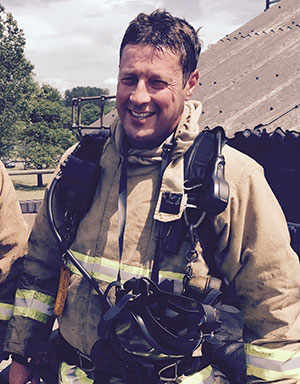Duties under this Order
5.—(1) Where the premises are a workplace, the responsible person must ensure that any duty imposed by articles 8 to 22B or by regulations made under article 24 is complied with in respect of those premises.
(2) Where the premises are not a workplace, the responsible person must ensure that any duty imposed by articles 8 to 22B or by regulations made under article 24 is complied with in respect of those premises, so far as the requirements relate to matters within his control.
(3) Any duty imposed by articles 8 to 22B or by regulations made under article 24 on the responsible person in respect of premises shall also be imposed on every person, other than the responsible person referred to in paragraphs (1) and (2), who has, to any extent, control of those premises so far as the requirements relate to matters within his control.
(4) Where a person has, by virtue of any contract or tenancy, an obligation of any extent in relation to—
(a) the maintenance or repair of any premises, including anything in or on premises; or
(b) the safety of any premises,
that person is to be treated, for the purposes of paragraph (3), as being a person who has control of the premises to the extent that his obligation so extends.
(5) Articles 8 to 22B and any regulations made under article 24 only require the taking or observance of general fire precautions in respect of relevant persons.
(As amended by s156 Building Safety Act 2022)
The original purpose of this article as outlined in the Consultation paper (Paras 45;318-320;336,336):
Responsible person
The person who is responsible for a place being used for an activity would
be responsible for the safety of themselves and others who use the place.
This would be:
- the employer (where there is one);
- the person in control of the premises in connection with the carrying on of
- a trade, business or other undertaking (for profit or not);
- the owner;
- any other person who to any extent exercises control over the place.
The draft Order would impose burdens on the “responsible person”,
other persons who have control of the premises, employees and public
authorities. The responsible person is defined in article 3. Where the
premises are a workplace, the employer would be the responsible person
if the workplace is, to any extent, under his control. In non-workplaces, the
person who has control of the premises in connection with the carrying on
by him of a trade, business or other undertaking (for profit or not) would be
the responsible person. Where there is no such person, the owner would
be the responsible person.
Article 5(1) would impose a burden on employers by placing a duty on
them to ensure that the requirements of the Order and any regulations
made under it are complied with in respect of the premises. This
responsibility reflects the employer’s responsibility under European
Community law to ensure the safety of his employees. Article 5(2) would
impose a similar, albeit slightly less onerous, duty, and hence burden, on
the responsible person in relation to non-workplaces. In such cases, the
responsible person would be under a duty to ensure that the requirements
of the Order and any regulations made under it are complied with in
respect of the premises, so far as they concern matters within his control.
320. Article 5(3) would impose a burden by imposing a similar duty on any
person other than the responsible person who has to any extent control of
the premises (the duty extending only so far as the extent of control). This
would, for example, apply to a contractor who was responsible for
maintaining a fire alarm system.
What the Enforcement Guidance says:
This article sets out the duty imposed on the responsible person (and others) to ensure
that the requirements of the Order and any Regulations made under it are complied
with in the premises. Article 5 implements the European Workplace Directive giving
employers the unconditional duty for ensuring the safety of their employees. The article
imposes similar duties on persons other than the responsible person (see article 3).



